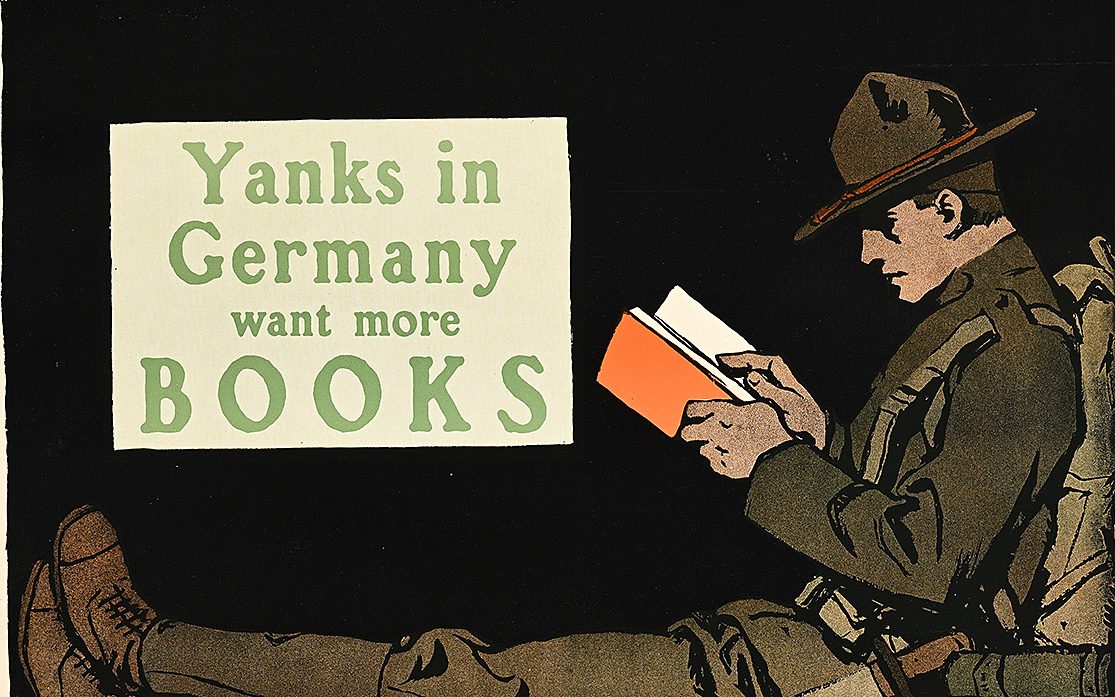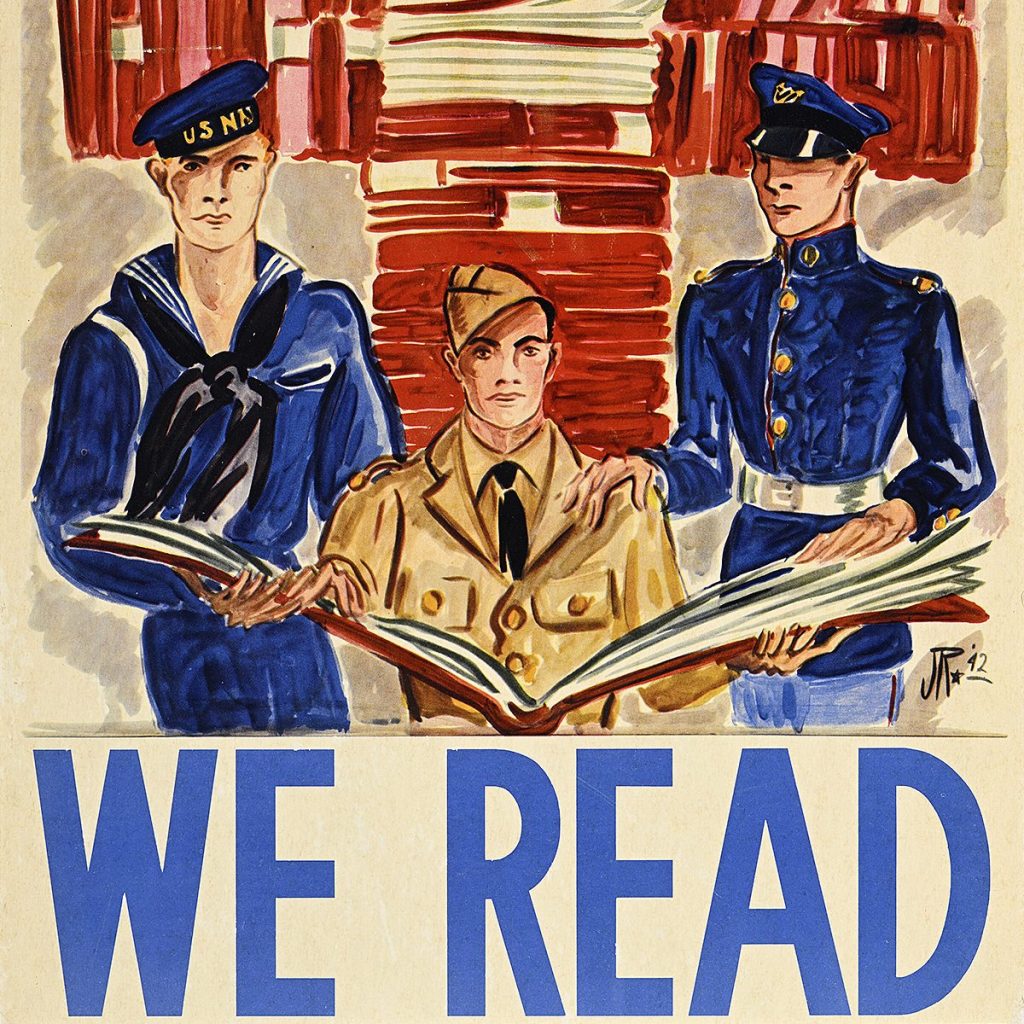Reading Under Fire: Arming Minds & Hearts During Wartime

During World Wars I and II, nearly every nation involved recognized that it was necessary to provide materials to maintain soldier wellbeing and morale. Because foot soldiers had to carry all of their possessions, small, portable entertainment was preferred. As such, books quickly soared in popularity. Between lulls in action or when waiting for orders far from the front lines, troops read to forget their surroundings and fears, taking a mental vacation from their hardships.
This exhibition includes book-related posters from the United States, Great Britain, Canada, and Germany printed during both world wars. All of these nations relied on public book donations and fundraising to supply soldiers with reading material, and many posters aimed to mobilize the public to give. While some encourage escapist fiction and recreational reading, educational books were also acquired for troops to help them prepare for promotion within the Army, future jobs, or civilian life. By World War II, books had also become a powerful symbol of freedom and democracy for America and its allies.
Molly Guptill Manning is an author, historian, curator, and associate professor of law at New York Law School. She is the author of the New York Times bestseller When Books Went to War, The Myth of Ephraim Tutt, and The War of Words. She has spoken across the country about the power of the written word, and has curated exhibits showcasing the essential role that books, magazines, and newspapers played in World Wars I and II. Before she became a professor, Molly worked in the New York federal courts for thirteen years. She earned a B.A. and M.A. in American history, an M.A. in Museum Studies from NYU, and a J.D. at the Benjamin N. Cardozo School of Law.




